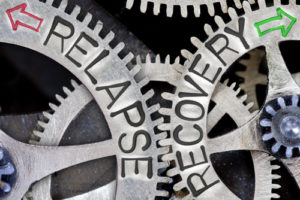By: Design for Change Recovery
Categories:
Coming Back From A Relapse, Of Any Kind
You are here:The worst relapse we can experience in recovery is a chemical relapse. However we get to making the decision, we decide to pick up drugs and/or alcohol again. Our relapse is either short term or long term. Problematically with relapse is that it isn’t as simple as drinking and using again for one night of fun, or abandoning recovery completely. With relapse, there are no guarantees. It can never be guaranteed that it will be any specific length of time because addiction is a chemical process in the brain as well as the body. What might start out as a “normal” experience of drinking regularly could turn chronic, quickly. Likewise, going out for a full bender then abruptly trying to stop could also be a moot effort. We find a way to come back to relapse, whether it’s after the first drink or the fifteenth drink. As soon as drugs or alcohol are in our body, we have decisions to make.
First, we have to decide if this is what we really want for ourselves. The pressure of chemical desire can be hard to overcome, which is why so many people relapse in the early stages of detox and withdrawal. After spending time sober and in recovery, we might have realized there is a better life for us. Even after convincing ourselves we can drink, deserve to drink, or should drink because recovery isn’t as great as using- as soon as we use, we realize we were wrong. Addiction isn’t the life we want for ourselves anymore. Realizing this, we make a call, bringing us to our next step.
Second, we reach out for help. Having realized the magnitude of our mistake, we admit our honesty to another person as soon as possible. This specific action is tied to the principles of honesty and surrender we learn in the steps. In step five, after writing our personal inventory in step four, we admit to ourselves and to another human being the exact nature of our wrongs. In step ten, when we write a daily inventory, we discover where we are wrong and promptly admit it. We surrender what we think we know- like drinking and using- and ask for help.
Third, create a plan for action. One of the primary themes in recovery is action. The entirety of the 12-step program is based on taking action and learning how to take action every day for recovery. In fact, a chapter of “The Big Book” of Alcoholics Anonymous, is called “Into Action”. If you’ve only used for one night, it’s unlikely you’ll need detox. If you’ve been using chronically for a period of time, you might need detox. You may not need to go back to residential treatment unless you truly feel you are unable to stay sober and present a danger to yourself. Regularly attending therapy or a lower level of care might be the best option.
Lastly, when you’re coming back for a relapse of any kind, it is critical to remember that there is hope for you. Addiction is described as a relapsing and remitting disease, that means that it is common for relapse to happen- but it doesn’t have to keep happening. You can learn to stay sober, one day at a time, for the rest of your life.
If you are ready to find refuge from addiction, Design For Change offers you the freedom you are looking for. Our treatment programs are created to help clients learn how to create big change in their life, one step at a time. Call us today for information on our treatment programs and recovery services: (877) 267-3646



